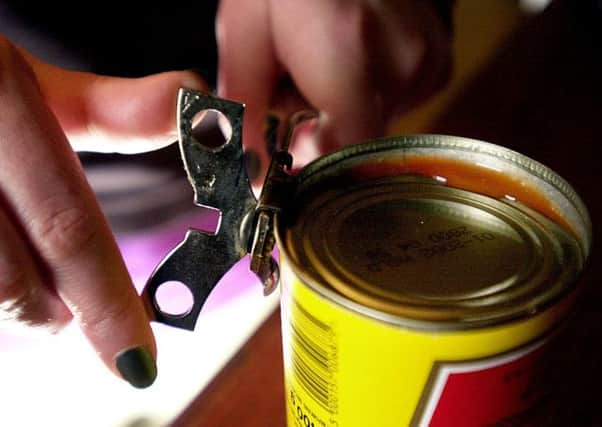Jane Bradley: Living on only £1 a day? That’s rich


According to one in five of the British population, a person is now not truly wealthy unless they have a net worth of £100 million. And half of people questioned say a individual is not properly considered to be of high net worth unless they have £10m or more.
Gone are the days, according to the survey by Oracle Capital Group, of boasting about being a millionaire – high property prices have meant that practically everyone is technically a single-digit millionaire these days.
Advertisement
Hide AdAdvertisement
Hide AdEven though debt help organisations such as Citizens Advice Scotland assure me this is most definitely not the case – 1,311 calls to CAS in the first three months of this year related to people not having enough money to buy food – it is clear that our perception of true wealth and what we take to be an acceptable standard of living has been skewed.
Yes, in Britain there is no denying that things have been tight for a lot of people. Some families are struggling to pay bills. Many are finding it difficult to put food on the table – and that is obviously unacceptable in modern society. But for the vast majority of us, compared to people living elsewhere in the world, we are still wealthy – regardless of whether or not we have £10m to chuck around.
Two-thirds of respondents to the poll blame the high visibility of wealthy celebrities for our inflated perception, saying their blatant affluence has shaped what we regard as a normal standard of living.
Earlier this week, it emerged that singer Adele had forked out £15,000 for a playhouse for her toddler son. Comments on a newspaper story revealing Adele’s purchase showed that the public feeling was not outrage, but acceptance – that Adele’s not-quite-two-year-old was obviously deserving of such a lavish present.
What constitutes a basic standard of living in one country may be seen as extreme wealth in another. The franchise of Who Wants to be a Millionaire? was interpreted very differently in different parts of the world. When it launched in Britain in 1998, £1m was regarded as quite a lot of money. However, in Belgium, pre-1999, when the franc was still in use, the programme was called Wie Wordt Multimiljonair? – “Who Wants to be a Multimillionaire?” The biggest prize was 20 million francs – worth about £400,000 – less than half that of the UK version. In Romania, before the government knocked a few zeros off the currency in 2005, it was Vrei sa fii miliardar? – “Do you want to be a billionaire?” Sounds good, but the top prize was worth more like £20,000.
On the equivalent show in India, the prize was 10m rupees – about £100,000 – while in Kazakstan, lucky winners could make a maximum of just £16,000, or five million tenga.
These would all have been life-changing sums in these countries at the time the programme launched. They still are. Especially for the near 20 per cent of the global population which lives on less than the real-terms equivalent of £1 a day. Yes, I said 20 per cent. That’s 1.2 billion people.
This week, nearly 6,000 people in the UK have taken on the challenge of Live Below the Line in aid of a range of charities such as Action Against Hunger, Oxfam and Action Aid – a fundraising initiative aimed at raising the plight of millions of people worldwide.
Advertisement
Hide AdAdvertisement
Hide AdGiven a budget of just £5 a week for food, the UK participants – with former First Minister Jack McConnell the top fundraiser so far – are actually far better off than their “real” equivalents living in places like India and Mozambique. Their money has to cover only food: for most poverty-stricken populations, it needs to go much further.
The British challengers have the luxury of a warm bed in which to rest their hungry bones and a hot shower to warm them up when the coldness – a side-effect of a restricted diet – sets in.
Those taking part in the challenge found that £5 does not buy much. One told me she had bought a pack of frozen peas, another of frozen mixed veg. Two tins of baked beans, four of kidney and two of canned tomatoes. Budget rice, some bananas, carrots, onions, two value yoghurts and a loaf of bread. Slim pickings for two people for five days. But more than a lot have.
Take part next year – I’m going to – and I promise you, within just that short week, you will definitely believe you are wealthy.